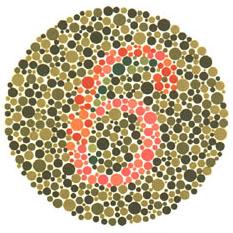
The Schilling Test is a special medical examination often used for those with vitamin B-12 deficiency
The purpose of this test is to determine just how much vitamin B12 the body can absorb from its intestinal tract. It's name is derived from Robert F. Schillinger, MD. Dr. Schillinger developed the procedure in the early 1980's. It's very important for doctors to know when and if they're giving their patients too much of this vitamin.
The Schillinger Test will first determine if the patient has a deficiency of Vitamin B-12. Then, a series of tests will show the level of absorption from the intestine into the blood stream. The level of absorption is also a good indicator of whether or not someone has a chronic vitamin B-12 deficiency, known as primary hypovitaminosis.
Vitamin B-12 is very important for the human body. It helps make red blood cells, muscle tissue, and tissue for nerve cells. Biotin, another form of vitamin B-12, is involved in producing energy, which is the source of all the chemical reactions in the body.
If someone doesn't have enough vitamin B-12 in their system, they may experience weakness, fatigue, and memory loss. They may also experience depression and anxiety attacks. They may also feel achy and restless. If they take prescription medication or vitamin supplements, the level of vitamin B-12 can be lowered. When vitamin B-12 is depleted in the body, it can't perform as efficiently as it should.
If the body doesn't have enough vitamin B-12 to perform at its best, the brain will produce less of the vitamin. The result can be depression, memory problems, and other symptoms. It's not clear why vitamin B-12 is so important to the body, but experts believe that it's vital to health. When it's depleted, it's hard for the body to produce it's own.
There are many ways to get vitamin B-12, such as eating liver, mushrooms, or taking a supplement. In some cases, blood tests may be required. The Schillinger tests are usually simple and don't involve a large number of invasive procedures.

Vitamin B-12 is only one aspect of a complete blood test that should be performed. A complete blood test should also be performed to monitor a patient's kidney function and liver function. A blood test may be ordered for any patient suspected of having diabetes or other organ toxicity.
Another part of a complete blood test that's very important is a liver function test. This test will look for protein levels in the blood. Proteins are made up of amino acids and can cause a person's levels to drop. This can lead to a condition called ketoacidosis. This condition causes the blood to become too acidic and it can have many serious complications.
The levels of the vitamin D hormone, known as the D-limonene, are also checked. High levels of the D-limonene in the blood mean the patient has low levels of this vitamin. Low levels can be caused by liver disease, cancer, and other diseases. A blood test can help detect this condition and determine whether it needs treatment.
A Schilling test also measures the levels of the thyroid hormone, called the TSH. The hormone regulates the activity of cells in the thyroid gland and it also helps regulate the production of the hormone insulin needed by the cells. When the levels of this hormone rise, it's called hyperthyroidism and when they fall, it's hypothyroidism.
In addition to abnormal levels of these hormones, the test will also look at the levels of glucose and fatty acids. When people are diagnosed with diabetes or kidney disease that affect the liver or pancreas, the test will be more specific to them.
If a person with diabetes doesn't already have their own test for diabetes, a blood test can be ordered to determine if they should start a program for diabetes testing. Diabetes testing can also be done before they begin any kind of exercise regimen, such as an exercise program.